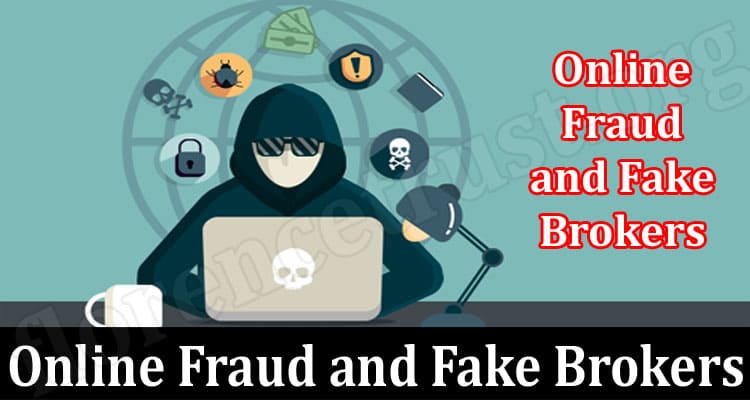Online Fraud and Fake Brokers: The foreign exchange took off to commendable heights after its digitization. Traders eager to deal in currencies worldwide made the most out of virtual forex trading. Unfortunately, although going virtual meant going big, it also made the market more accessible to hackers, forex frauds, and broker scams.
The hoax participants get the genuine users hooked onto their scheme, directly or indirectly. A quick example of indirect forex fraud is the hackers gatecrashing into a user’s e-wallet or financial details, ultimately robbing their money. Inversely, scammers who tempt the audience to join in on a pyramid scheme or other captivating investment scheme breed and grow directly onto the trading platform.
One thing is for sure; these scams range broader than any celebrity’s wardrobe collection. They come up with new techniques, schemes, and unavoidable selling points. Moreover, they set out an unidentifiable mousetrap with the help of their marketing skills and ability to restore faith within the user.
This article aims to notify forex traders, market participants, beginners, and a broad audience about the kinds of financial scams and frauds that emerge and evolve across the Internet. We always recommend taking the road to self-empowerment rather than dealing with the regressive aftermath. Hence, being alarmed and educated does closely translate to being well armed.
So, what are Online Frauds?
Internet scams and frauds refer to the bunch of predators who break the law, privacy policy, and authenticity of an undertaking by stealing either money or other valuables online. It is a case of robbing, planned, and initiated in a digital space. For instance, bank thefts occur when users may be called or texted stating, “Your card has been blocked, and further to unblock the services you need to share your financial details.” Some may even receive a text message or email from the government authority, such as the income tax office or insurance company, along with attached files that lay out all the details of the situation. Further, they may inform you that your account has been compromised and that you may access a link shared by them to set a new password.
Then there are lottery scams that ping you with an unanticipatedly huge win, requesting a signup fee before drawing your funds. They have been among the oldest financial frauds, traveling from the traditional world to the virtual one. But none of it makes sense; you can’t win a show unless you perform in it. Likewise, you can’t believe that you won a lottery unless you participated in one. Additionally, frauds have stretched out across social media. Here deceitful people start a conversation, try to seek sympathy, build trust and convince you that you are a reliable and vital person to them. Eventually, they share a tragic story and explain how they are in dire need of money. Unfortunately, most people feel obliged to help when they get attached to someone, and that’s the string that the scammer plans to pull.
Banking frauds
Scammers need their hands on the crucial digits like your Card no, expiration date, CVV/CVC digit, and owner’s name to slide into your bank account and steal your money. They might use skimming to get these details. Skimmers place secret detectors on the ATMs or employ faulty systems at their retail shop. While this explains one procedure, scammers use plenty of online tactics to steal your financial details, either via misleading calls, text messages, emails, or chats across social media.
Broker frauds and Forex scammers
Broker scam use huge returns and no-risk trades as a marketing gimmick. However, the forex market is affected by many factors and isn’t risk-free. These forex frauds work towards an investor’s losses even more. Generally, participating in a forex trade requires the assistance of a broker or dealer, which in our opinion, is a crucial decision. The digital space comprises fake broker websites, duplicated brands, unregistered brokers, and sweet talkers who’ll get you to believe anything, even if it indicates earnings that aren’t attainable in the real world.
Thousands of forex fraud victims collaborated with such swindlers and learned that they couldn’t withdraw their money when they needed it. Instead, they would get excuses such as server overload, glitches with the system, and more. It is a sudden and shocking revelation for investors who staked on them in good faith.
Other forex scams involve fake courses, useless paid strategies, signal-sellers, etc. In each of these scams, the motive, procedure, and results are constant. The user is promised enticing rewards for an insignificant fee. In some cases, they may sign you up with a contract that says that you understand the market is unpredictable and you will accept any losses incurred.
Conclusion
We’ve run through the dominant forex, banking, and broker scams that the market has ever witnessed. To ease things down and ensure you don’t fall prey to a similar scam, here are some significant do’s and don’ts;
- Do not reveal your banking information to any person, anonymous or not.
- Assess the ATM before withdrawing your money.
- Do not click on links or documents sent by unknown accounts.
- Set limits on your withdrawal, online spending, and credits.
- Evaluate the broker, trading platform, or website before signing up or investing through them.
- Check for the firm’s license to operate as a broker.
- Jog through the company’s consumer reviews.
- Double-check whether they have been added to the blacklisted firms.
- Always read the contract before you click next. It’s 10 minutes down your sleeve, better than a regretful experience.
- Avoid interacting with spam/unknown callers.
- Choose your course or service provider wisely


